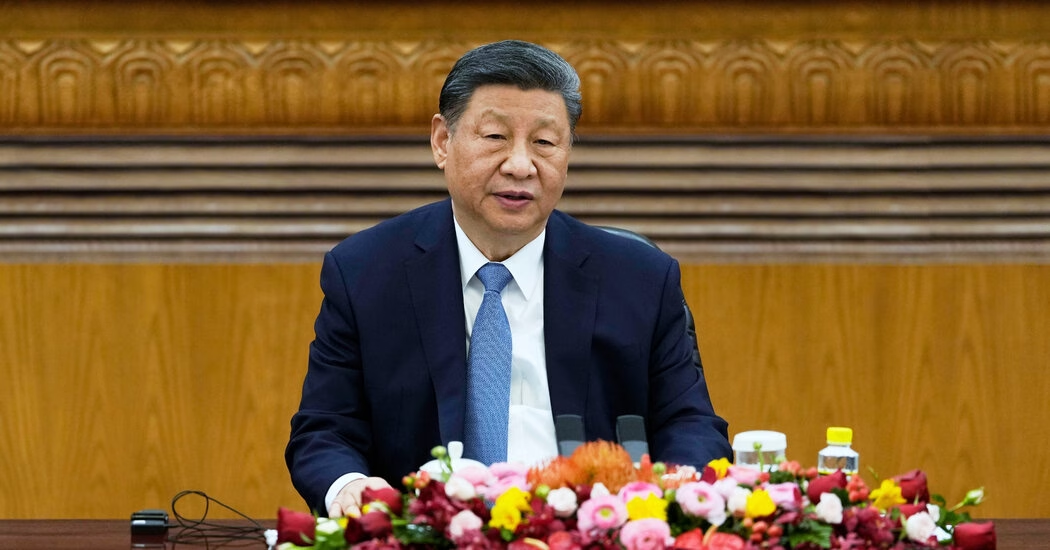As China grapples with the United States amid a severe trade conflict, it is compelled to fortify its global alliances, with a priority on its Southeast Asian neighbors. However, these relationships are multifaceted.
Chinese President Xi Jinping will be assessing these connections this week, embarking on visits to Vietnam, Malaysia, and Cambodia in an endeavor to mitigate the impact of the significant tariffs that President Trump has imposed on Chinese exports to the United States.
Mr. Xi is expected to present China as a dependable international ally, contrasting sharply with the volatile Trump administration whose erratic tariffs have unsettled both financial markets and governments worldwide. For example, in Vietnam, Mr. Xi is slated to oversee the signing of around 40 agreements, including transactions that will advance plans for Vietnam to secure Chinese loans for a portion of an $8.3 billion railway linking northern Vietnam with China.
However, Mr. Xi’s trip also underscores the delicate diplomatic balance that nations like Vietnam and Malaysia must maintain as they seek exemptions from Trump’s tariffs.
Mr. Xi’s tour, commencing in Vietnam followed by a three-day stay in Malaysia and concluding in Cambodia, has trade as a central theme. Over the past decade, China has exerted considerable effort to expand its economic and political influence across Southeast Asia, and is now the region’s most significant trading partner. Senior Chinese officials, including Mr. Xi, frequently travel to the area.
China is a pivotal market for Vietnam’s agricultural exports and supplies Vietnam with the bulk of its raw materials; between 60 and 90 percent of the raw materials for Vietnamese apparel destined for the U.S. market originates from China. Despite being bankrolled by the U.S. tariffs, Vietnam and Cambodia have become targets for Mr. Trump’s steep tariffs, which he has temporarily paused for 90 days.
On the other hand, there is concern that due to the tariffs that Mr. Trump has retained on Chinese goods, a surplus of affordable Chinese products, barred from the U.S. market, could flood into Southeast Asia, jeopardizing local economies.
Mr. Xi will be keen to learn how countries might react to the U.S.-China trade conflict. He will also aim to bolster relationships in anticipation of potential tensions, according to Ja Ian Chong, a professor of political science at the National University of Singapore.
Local economies are likely to enact measures to prevent China from oversupplying local markets with its goods, said Sonal Varma, chief Asia economist (excluding Japan) at Nomura.
While pursuing opportunities with China, Southeast Asian nations also need to avoid appearing too aligned with Beijing. There are concerns among Vietnamese officials, for instance, that Mr. Xi’s high-profile trip, coupled with language emphasizing China’s partnerships, could hamper Vietnam’s long-term efforts to secure a reprieve from Mr. Trump’s tariffs.
The prime minister of Malaysia, Anwar Ibrahim, defended the region’s ties with China, stating that it is a key player that cannot be ignored.
Furthermore, Beijing has financed the reconstruction of a significant naval base in Cambodia, granting the Chinese military access to a vital global sea lane. In Malaysia, Mr. Xi is expected to reaffirm his backing for pre-existing agreements aiming to construct rail links and ports.
Zunaira Saieed, Sun Narin, and Alexandra Stevenson contributed reporting for this article from Kuala Lumpur, Malaysia, Phnom Penh, Cambodia, and Hong Kong, respectively.
Source: https://www.nytimes.com/2025/04/13/world/asia/china-xi-us-trade-war-southeast-asia.html






